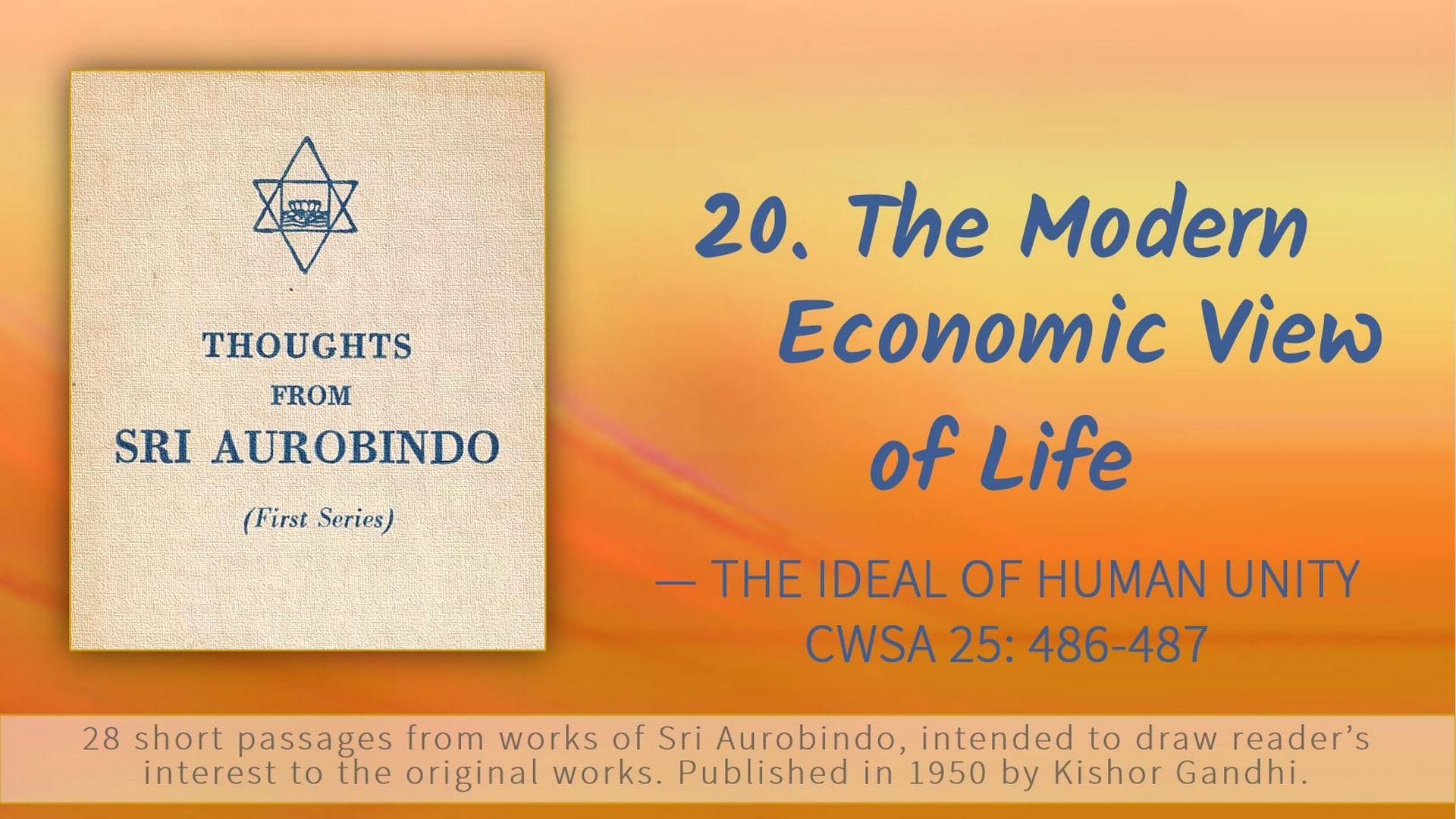
The phenomenon of modern social development is the decline of the Brahmin and Kshatriya, of the Church, the military aristocracy and the aristocracy of letters and culture, and the rise to power or predominance of the commercial and industrial classes, Vaishya and Shudra, Capital and Labour. Together they have swallowed up or cast out their rivals and are now engaged in a fratricidal conflict for sole possession in which the completion of the downward force of social gravitation, the ultimate triumph of Labour and the remodelling of all social conceptions and institutions with Labour as the first, the most dignified term which will give its value to all others seem to be the visible writing of Fate. At present, however, it is the Vaishya who still predominates and his stamp on the world is commercialism, the predominance of the economic man, the universality of the commercial value or the utilitarian and materially efficient and productive value for everything in human life. Even in the outlook on knowledge, thought, science, art, poetry and religion the economic conception of life overrides all others.[1]
For the modern economic view of life, culture and its products have chiefly a decorative value; they are costly and desirable luxuries, not at all indispensable necessities. Religion is in this view a by-product of the human mind with a very restricted utility — if indeed it is not a waste and a hindrance. Education has a recognised importance but its object and form are no longer so much cultural as scientific, utilitarian and economic, its value the preparation of the efficient individual unit to take his place in the body of the economic organisation. Science is of immense importance not because it discovers the secrets of Nature for the advancement of knowledge, but because it utilises them for the creation of machinery and develops and organises the economic resources of the community. The thought-power of the society, almost its soul-power — if it has any longer so unsubstantial and unproductive a thing as a soul — is not in its religion or its literature, although the former drags on a feeble existence and the latter teems and spawns, but in the daily Press, primarily an instrument of commercialism and governed by the political and commercial spirit and not like literature a direct instrument of culture. Politics, government itself are becoming more and more a machinery for the development of an industrialised society, divided between the service of bourgeois capitalism and the office of a half-involuntary channel for the incoming of economic Socialism. Free thought and culture remain on the surface of this great increasing mass of commercialism and influence and modify it, but are themselves more and more influenced, penetrated, coloured, subjugated by the economic, commercial and industrial view of human life.
— The Ideal of Human Unity
The Human Cycle, The Ideal of Human Unity CWSA 25: 486-487
[1] It is noticeable that the bourgeois habit of the predominance of commercialism has been taken up and continued on an even larger scale by the new Socialist societies though on the basis of a labour, instead of a bourgeois economy, and an attempt at a new distribution of its profits or else, more characteristically, a concentration of all in the hands of the State.



About Savitri | B1C1-09 Advent of the Divine Mother (p.4)